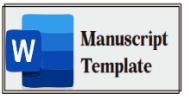KEMANFAATAN DANA ZAKAT BAGI MUSTAHIK
Abstract
The theme of the article is "economy based on the principles of Islam". This research aims to determine how the use of funds Zakat in the BAZNAS of east Lombok Timur. The method used is descriptive qualitative research with field research type. Zakat is a financial obligation which is taken from the rich who have become obligatory zakat to be submitted to the people that the criteria have been specified in the law. Zakat basically has great potential to become financial solution, with the nature of zakat that never exhausted or even stop. Because zakat as the religious obligation taht must be fulfilled by a Muslim every year or in the others predetermined time. Badan Amil Zakat Nasional (BAZNAS) as the formal management zakat institutions in Indonesia, distribute zakat fund to the zakat recipient (mustahik), especially for the indigent and poor people through consumptive zakat to but their daily basic needs, and also can be a productively zakat to gain their business assets. Just as the mustahik utilize the zakat funds for their efforts as a household can produce an economy that can meet the needs of his life. In addition, some are using the funds that have been received zakat to raise cattle and goats. Not apart from the purpose of zakat itself which one of them is to alleviate the mustahiq of poverty, Because zakat funds are not used consumptively, but productively managed and maximized in order to prosper the community. But it is different with the mustahik in BAZNAS; they utilize zakat funds not in accordance with the designation. This is due to the lack of monitoring from BAZNAS staff.
Keywords
Full Text:
PDF (Bahasa Indonesia)References
Hafidhuddin, Didin. (1998). Panduan Praktis tentang Zakat, Infaq, Sedekah. Jakarta: Gema Insani.
Hafidhuddin, Didin. (2002). Zakat dalam Perekonomian Modern. Jakarta: Gema Insani.
Inoed, Amiruddin. (2005). Anatomi Fiqh Zakat: Potret & Pemahaman Badan Amil Zakat Sumatera Selatan. Yogyakarta: Pustaka Pelajar.
Muhadjir, Noeng. (1996). Metodologi Penelitian Kualitatif. Yogyakarta: Rake Sarasin.
Qardhawi, Yusuf. (1993). Hukum Zakat. Jakarta: Pustaka Litera Antar Nusa.
Qadir, Abdurrahman. (1998). Zakat dalam Dimensi Mahdah dan Sosial. Jakarta: RajaGrapindo Persada.
Soemitra, Andri. Bank dan Kembaga Kuangan Syariah. Jakarta: Kencana Prenada Media Grup.
Sugiyono. (2010). Metode Penelitian Kuantitatif, Kualitatif & R&D. Bandung: Alfabeta.
Sugiyono. (2013). Memahami Penelitian Kualitatif. Bandung: Alfabeta Bandung.
Suryabrata, Sumadi. (1987). Metode Penelitian. Jakarta: Rajawali.
DOI: http://dx.doi.org/10.15548/al-masraf.v2i2.134
Refbacks
- There are currently no refbacks.

This work is licensed under a Creative Commons Attribution-NonCommercial-ShareAlike 4.0 International License.
View My Stats

